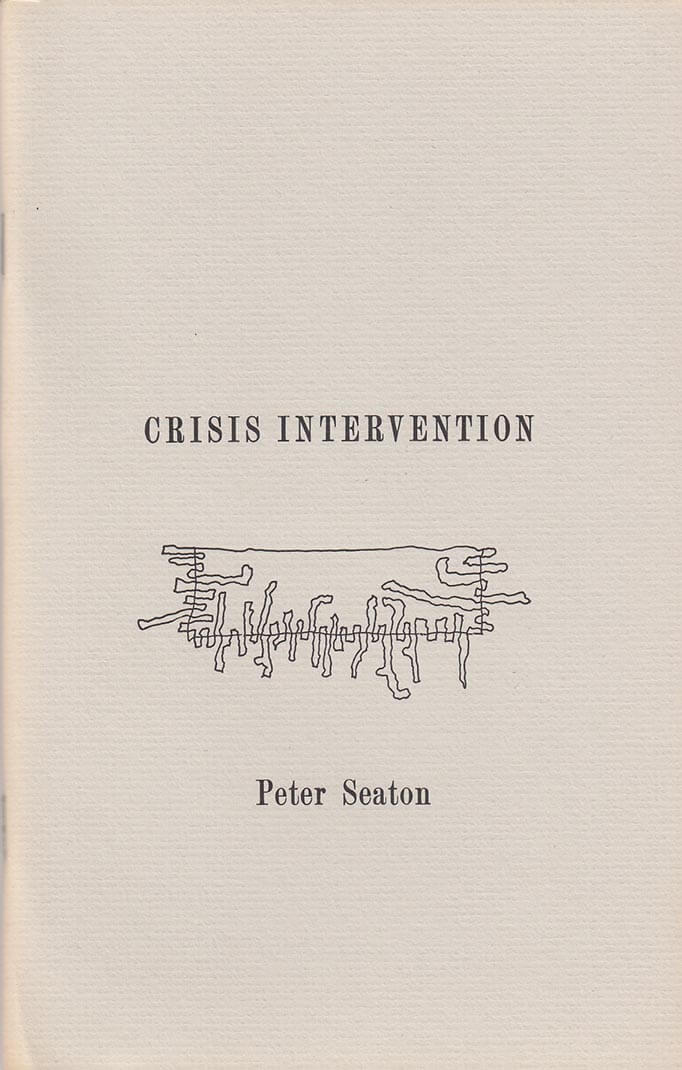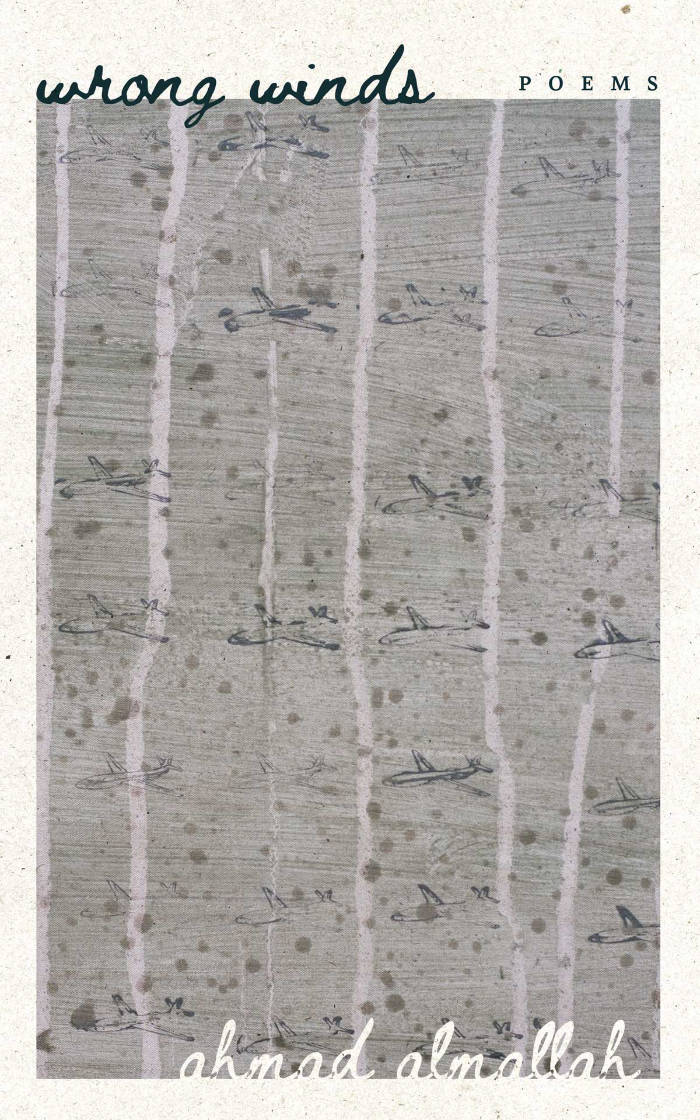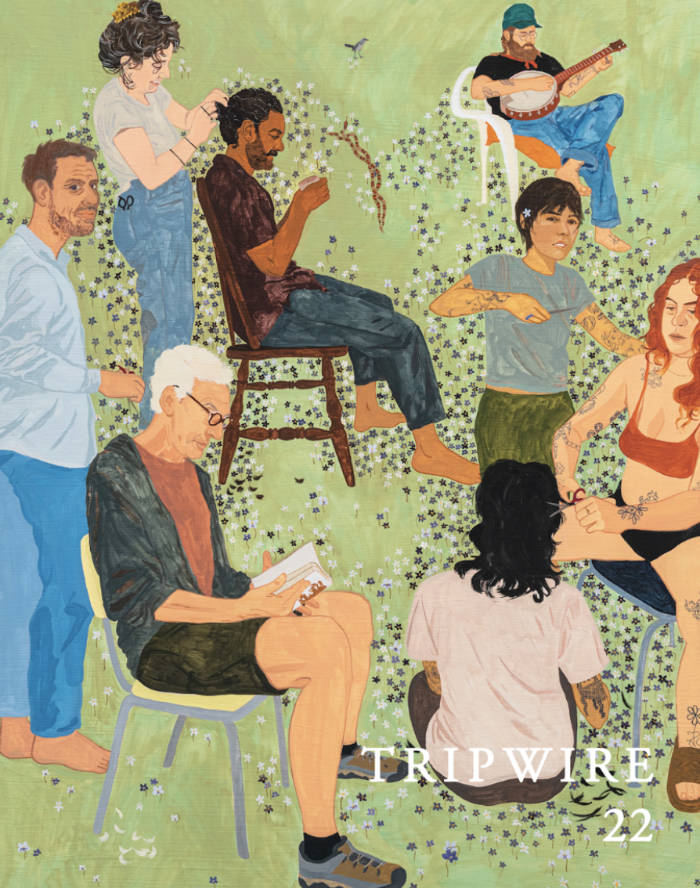

recommendations

EN
In het begin van de jaren 1970, hield Guy Rombouts een notaboekje bij waarin hij alle woorden, bijvoeglijk naamwoorden en werkwoorden bijhield die hij tegenkwam tijdens het lezen en die met elkaar verbonden waren door het voegwoord ‘en‘.
Ongeveer 50 jaar later en met de hulp van de grafische vormgever Jeroen Wille, is de transcriptie van zijn aantekeningen gepubliceerd als een boek dat gelezen kan worden in twee richtingen (en als enige boek coronaproof met twee tegelijkertijd).
Het boek bevat 2158 verzen met in totaal 4316 EN-combinaties.
De kortste verzen met evenveel letters:
A EN Z
4 EN 6
De langste verzen met evenveel letters:
ONUITSPREKELIJKHEDEN EN IMPONDERABILIA
ONEVENWICHTIGHEID EN ZELFOVERSCHATTING

Deviant Propulsion
Delving into the center of the endless webs of repression against our bodies, desires, politics, and imaginations, are those whose actions and motion cut away at the systemic limitations of society–this collection of poems was written with the inspiration and work of these people in mind.
As a working class queer poet, Conrad has had to fight through different stratifications of oppression his entire life. His poems vibrate with the flamboyant desire that manifests itself in queer culture, where the right to act on basic desires can become a battleground, and everyday acts of love and devotion must be enacted as a political form of defiance. Deviant Propulsion is dedicated to the elimination of fear. The title refers to the idea that those who are deviant propel the world forward at top speed. The poems that emerge from this life-long struggle illustrate the sharp edge of that defiance and desire, where joy is closely linked to death. In a world ruled by those who govern with fear, and in a landscape barbed with those who are terrified of desire, moving at speed of deviants is the only way to transform potential into action, and desire into positive change.
CAConrad is the author of nine books of poetry and essays, including their latest book JUPITER ALIGNMENT: (Soma)tic Poetry Rituals and While Standing in Line for Death, which won a Lambda Book Award. A documentary about their work, The Book of Conrad, is viewable online on their website.

The Power of Adrienne Rich: A Biography
The first comprehensive biography of Adrienne Rich, feminist and queer icon and internationally revered National Book Award winning poet.
Adrienne Rich was the female face of American poetry for decades. Her forceful, uncompromising writing has more than stood the test of time, and the life of the woman behind the words is equally impressive. Motivated by personal revelations, Rich transformed herself from a traditional, Radcliffe-educated lyric poet and married mother of three sons into a path-breaking lesbian-feminist author of prose as well as poetry. In doing so, she emerged as both architect and exemplar of the modern feminist movement, breaking ranks to denounce the male-dominated literary establishment and paving the way for the many queer women of letters to take their places in the cultural mainstream. Drawing on a wealth of unpublished materials, including Rich's correspondence and in-depth interviews with numerous people who knew her, Hilary Holladay digs deep into never-before-accessed sources to portray Rich in full dimension and vivid, human detail.

Wrong Winds
Ahmad Almallah’s third poetry collection considers the impossible task of being a Palestinian in the world today.
When genocide is the question, can the answer be anything but wrong? In Wrong Winds, written during the first months of Israel’s genocidal assault on Gaza, Palestinian-American poet Ahmad Almallah converses with the screams echoing throughout the West. Traversing European cities, Almallah encounters the impossibility of being a Palestinian, left alone in a world full of sympathizers and enemies. Through a continuous unsettling of words and places, considering the broken voices of Western poetry (Eliot, Lorca, and Celan, among others), the poems in Wrong Winds discover the world again and form an impossible dialogue with the dead and dying.

Tripwire 22
Featuring work by Sara M Saleh, Joni Prince, Shatr Collective, Carlos Soto Román, Petra Kuppers, Diane Ward, Dianna Settles, Mayra Santos-Febres translated by Seth Michelson, Elena Gomez & Chelsea Hart, Noah Mazer, Daniel Borzutzky, Ash(ley) Michelle C., Ghazal Mosadeq, Darius Simpson, Mohammed Zenia, Mario Payeras translated by Dan Eltringham, Ferreira Gullar translated by Chris Daniels, Christophe Tarkos translated & read by Marty Hiatt, Andrew Spragg on Tom Raworth, Matthew Rana on Ida Börjel, & Paisley Conrad on Harryette Mullen